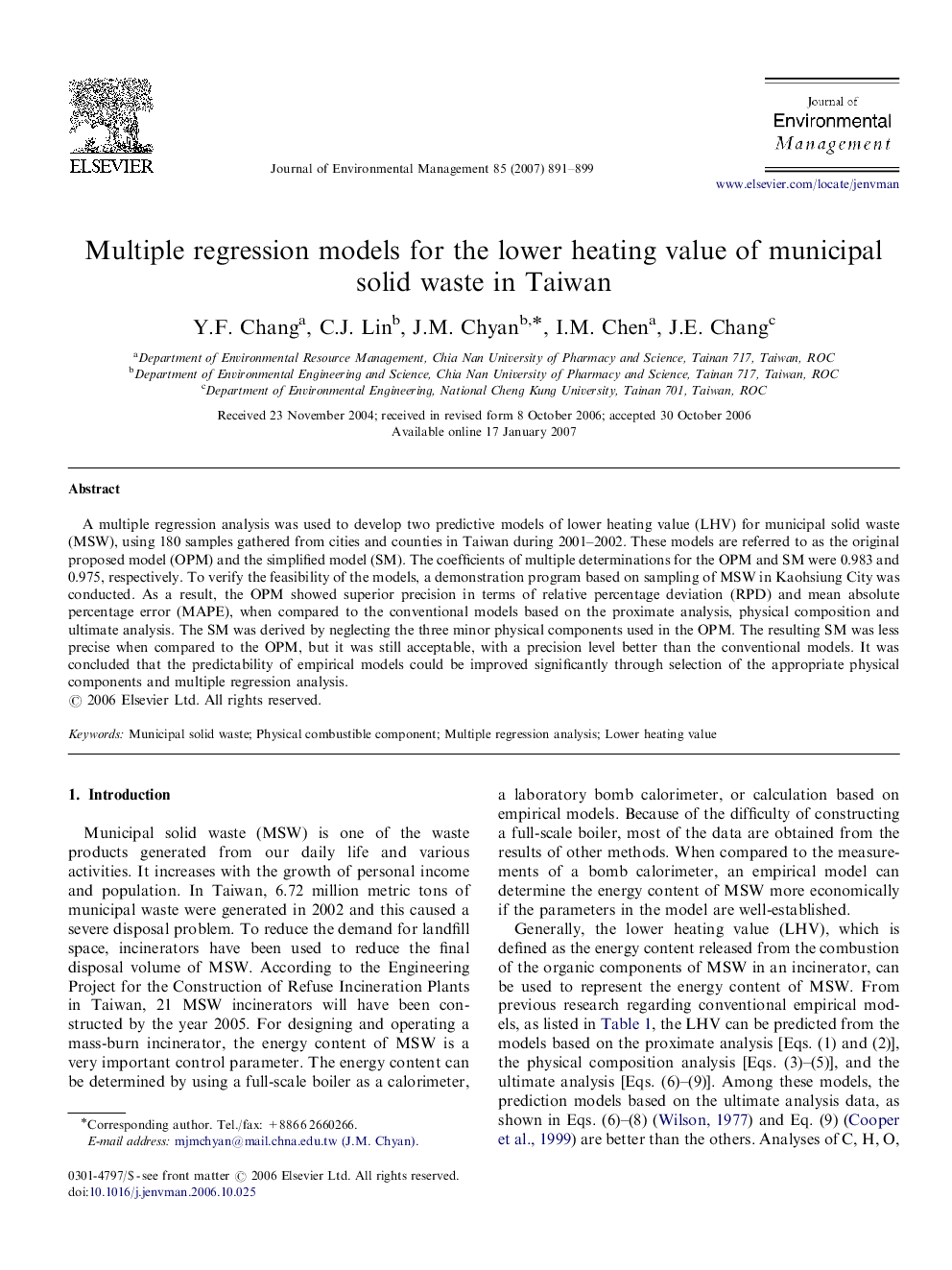| Article ID | Journal | Published Year | Pages | File Type |
|---|---|---|---|---|
| 1058492 | Journal of Environmental Management | 2007 | 9 Pages |
A multiple regression analysis was used to develop two predictive models of lower heating value (LHV) for municipal solid waste (MSW), using 180 samples gathered from cities and counties in Taiwan during 2001–2002. These models are referred to as the original proposed model (OPM) and the simplified model (SM). The coefficients of multiple determinations for the OPM and SM were 0.983 and 0.975, respectively. To verify the feasibility of the models, a demonstration program based on sampling of MSW in Kaohsiung City was conducted. As a result, the OPM showed superior precision in terms of relative percentage deviation (RPD) and mean absolute percentage error (MAPE), when compared to the conventional models based on the proximate analysis, physical composition and ultimate analysis. The SM was derived by neglecting the three minor physical components used in the OPM. The resulting SM was less precise when compared to the OPM, but it was still acceptable, with a precision level better than the conventional models. It was concluded that the predictability of empirical models could be improved significantly through selection of the appropriate physical components and multiple regression analysis.
